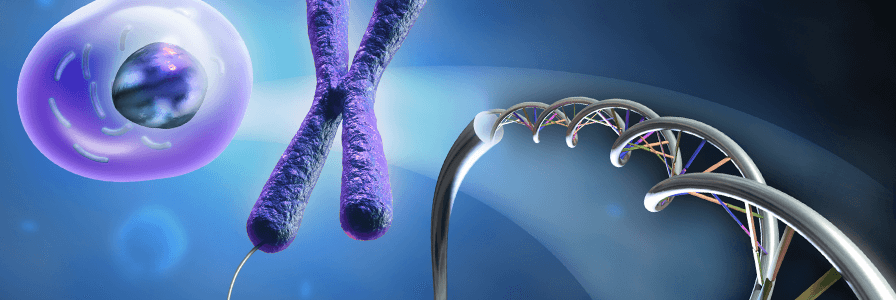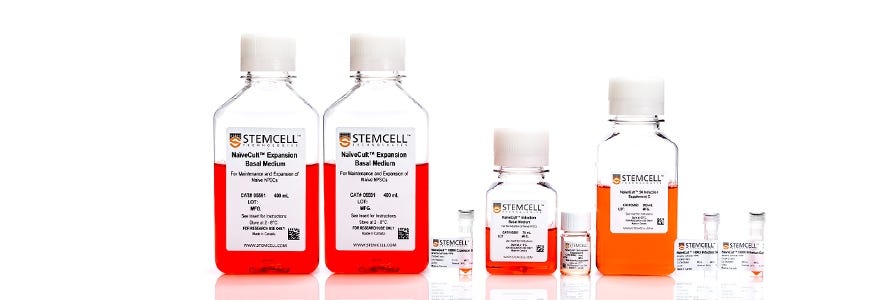Epigenetic Landscape of Pluripotent Stem Cells

Epigenetic regulation occurs in multiple waves during early embryonic development. After fertilization, both maternal and paternal copies of the genome undergo global epigenetic changes. This converts the epigenome of the differentiated gametes into that of the zygote, triggering zygote-specific gene expression. During blastocyst formation, a second group of changes occur: the ablation of DNA methylation patterns, distinct changes in histone modifications, and the reactivation of both X chromosomes in female cells. In the post-implantation epiblast, a third group of changes occur: chromatin becomes progressively inaccessible, repressive epigenetic marks increase, and an X chromosome is inactivated in female cells.
In general, studies suggest cultured embryonic stem (ES) cells are able to recapitulate the epigenetic landscape observed in the developing embryo. This is important since the epigenetic plasticity of stem cells, with more accessible chromatin domains and less heterochromatin foci, enables them to react to distinctive stimuli and undergo differentiation into a wide range of tissues. For the generation of induced pluripotent stem (iPS) cell cultures, the restricted somatic chromatin is extensively reorganized into the more accessible epigenetic landscape indicative of ES cells. There is a substantial latency in this reprogramming process, with epigenetic aberrations present in early passage numbers reflecting transient epigenetic memory from the cell types that the iPS cells are derived from. Using only iPS cells that have fully reprogrammed is therefore important, and can be assessed using functional assays such as trilineage differentiation potential. In studies comparing the epigenomes of iPS cells and ES cells, both DNA methylation patterns and histone modifications are highly similar.
Key Publications
- Atlasi and Stunnenberg review epigenetic modification of chromatin, a dynamic process that shapes early development and differentiation.
Atlasi Y & Stunnenberg HG (2017) The interplay of epigenetic marks during stem cell differentiation and development. Nat Rev Genet 18(11): 643-58. - Bilic et al. review the epigenetic landscape of pluripotent stem cells, in particular, epigenetic comparison between induced pluripotent stem cells and embryonic stem cells.
Bilic J & Izpisua Belmonte JC (2012) Concise review: Induced pluripotent stem cells versus embryonic stem cells: close enough or yet too far apart? Stem Cells 30(1): 33-41. - Liang and Zhang review epigenetic landscapes of embryonic stem cells and induced pluripotent stem cells.
Liang G & Zhang Y (2013) Embryonic stem cell and induced pluripotent stem cell: an epigenetic perspective. Cell Res 23(1): 49-69.
Induce and Expand Naïve Reset Human Pluripotent Stem Cells

NaïveCult™ Induction Kit
NaïveCult™ Induction Kit contains defined cell culture media for the chemical induction of transgene-free reset naïve human embryonic stem (ES) and induced pluripotent stem (iPS) cells from the primed state. The kit was developed under license from the Cambridge Stem Cell Institute at the University of Cambridge, UK based on Guo et al. (2017).

NaïveCult™ Expansion Medium
NaïveCult™ Expansion Medium is a defined medium for the robust expansion of reset naïve human embryonic stem (ES) and induced pluripotent stem (iPS) cells. This medium was developed under license from the Cambridge Stem Cell Institute at the University of Cambridge, UK based on the t2iL + Gö formulation developed by Austin Smith.

RSeT™ Feeder-Free Medium
RSeT™ Feeder-Free Medium is a serum-free medium that reverts primed hPSCs and maintains cells in a naïve-like state without the need for basic fibroblast growth factor (bFGF) or feeder cells. It produces robust cultures with a naïve-like morphology and increased expression of key naïve-associated transcripts.
Understanding the ISSCR Standards for Human Stem Cell Use in Research
Learn how STEMCELL can help you apply the Standards to improve the quality and reproducibility of your research with a curated collection of resources and more standardized practices for assessing gene & cell surface marker expression. From webinars, to interviews, to articles, you will find the information you need to achieve higher-quality results and more standardized practices. www.stemcell.com/ISSCR-Standards

